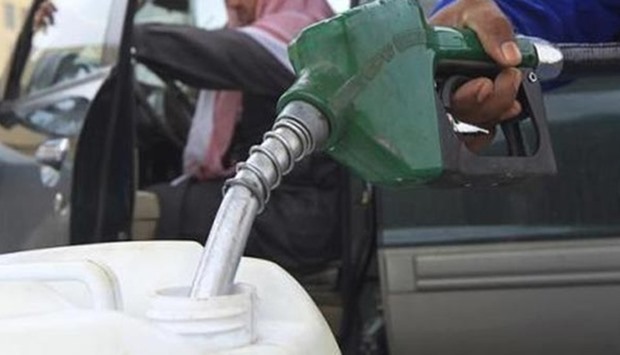Saudi Arabia has raised domestic energy prices, including fuel prices, state news agency SPA said on its Twitter account on Monday.
Domestic fuel, water and electricity prices are currently among the lowest in the world because of heavy state subsidies.
Raising the prices would reduce pressure on the state budget and would be one of Saudi Arabia's biggest economic reforms in many years.
The world's largest oil exporter has set the price of 95 octane gasoline at 0.90 riyals per litre, SPA said, up from the current price of 0.60 riyals per litre.
The kingdom has also raised prices for gas, diesel and kerosene, according to SPA.
The price increases would take effect from Tuesday, the report added.
Saudi posts record $98bn deficit in 2015: ministry
Saudi Arabia posted a record $98bn budget deficit in 2015 due to the sharp fall in oil prices, the finance ministry said on Monday, AFP reports from Riyadh.
Revenues were estimated at 608bn riyals ($162bn), well below projections and 2014 income, while spending came in at 975bn riyals ($260bn), ministry officials announced at a press conference in Riyadh.
The budget deficit is the highest in the history of Saudi Arabia, the world's largest oil exporter, but was not as big as some expected.
The International Monetary Fund had projected the 2015 deficit to be around $130bn and other reports also put it above $100bn.
It was the second deficit year in a row for Saudi Arabia and Riyadh is expected to announce another shortfall when it unveils its 2016 budget later on Monday.
The kingdom has seen a sharp drop in revenues as oil prices have fallen by more than 60% since mid-2014 to below $40 a barrel.
Public revenues are the lowest since 2009, when oil prices dived as a result of the global financial crisis.
Income for 2015 was 15% lower than projections and 42% less than in 2014.
Oil income has normally contributed around 90% of total revenues.
Riyadh maintained high spending this year, and launched an expensive military intervention in Yemen, by tapping into the huge fiscal reserves it accumulated when oil prices were high.

